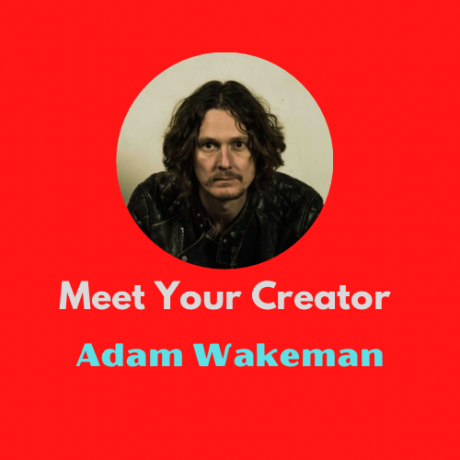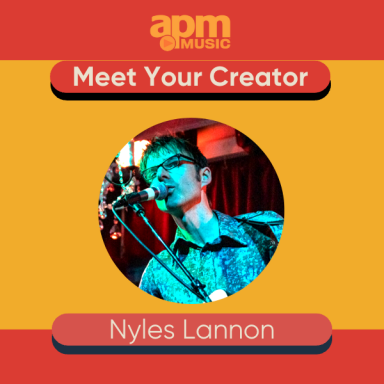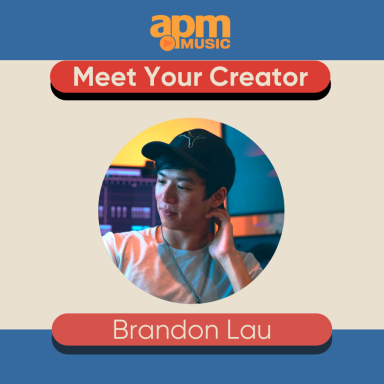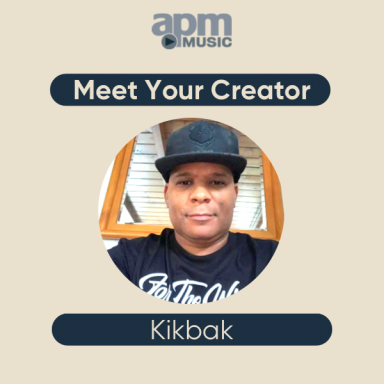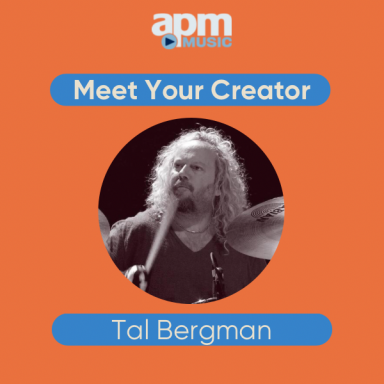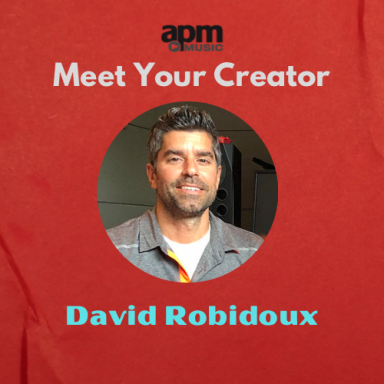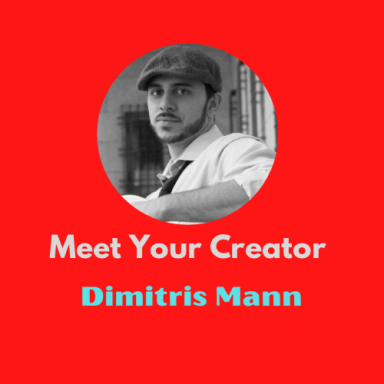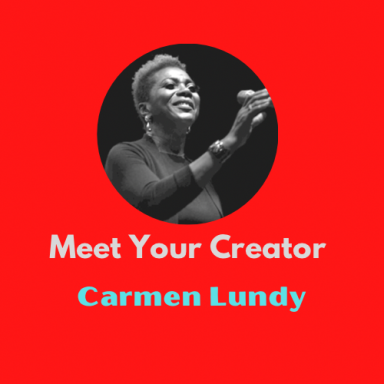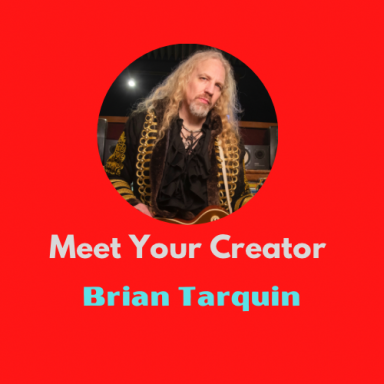Meet Your Creator: Adam Wakeman
By Sam Freeman
As the son of keyboardist Rick Wakeman of Yes fame, Adam Wakeman has spent the last 30 years building an artistic career, working as a music director and touring as a keyboard player with the likes of Ozzy Osbourne and Annie Lennox. His early releases were joint albums with his father, followed by years on the road before starting his library label, The Perfect Music Library. After that, he partnered with APM to launch a second label, Adam Wakeman Presents.
We recently spoke with Adam about his music background, the acts he's been on tour with, and how it's been running a library label alongside APM.
Hi Adam. A pleasure to be speaking with you. Given that your father is a keyboardist in a famous band, would you say that being a musician was a foregone conclusion for you?
Adam: "Yes and no. When I was eight, I saw my dad playing with Yes at Wembley Arena, and that's when I decided that I wanted to be a musician, but it wasn't a foregone conclusion because so many hours of practice and work were still required. You need to be unbelievably disciplined to pursue music, and my advantage was that I could see my dad on stage and picture what I wanted to be. I was also lucky to pick my career so early because I would've been a Greenpeace protester or policeman otherwise, neither of which I think would've been fun in hindsight. (laughs)."
Is it true that you were originally a classical pianist?
Adam: "Yes, it is. I started off playing the Royal School of Music classical grades, which are the exams for music studies in the UK. If you wanted to play piano in those days, you learned the scales and the classic pieces and then did the exams. It was good discipline for me because the scales and arpeggios were great for technique, but I never wanted to be a pianist. My studies were just a means for music training, and since I didn't have much direction early on, I tried as many things as possible, from progressive rock to pop and even musical directing. As I got into my 20s, I'd say "yes" to everything, and it's only recently that I've said "no" to things. Time is more precious now, so I'm trying to do things I get the most pleasure from rather than take 300 shows a year to fill my calendar."
The 80s featured a lot of new keyboards like the Yamaha DX7 and Roland D-50 being released. How did that landscape affect your development as a player?
Adam: "I was mainly focused on piano, but I did have a Yamaha DX21 since I couldn't afford the DX7. I also had a Roland D-50, but it wasn't until the 90s that I got my first proper Korg. These days I have a Hammond C3 with Leslie 145, which are my prized possessions."
What have been some of your favorite keyboards over the years, and what kind of relationships do you have with the manufacturers?
Adam: "Korg has been very supportive since I was eighteen and started touring with my father. They were the first company that showed belief in me and would lend me equipment for as long as I needed it. That relationship has continued for over 30 years, and it's not an exclusive endorsement - they're just happy for me to use the stuff and provide feedback on what features work best. I use Yamaha keyboards, too, like the Motif, but it's a headache to set up sounds with that. You're typically under pressure timewise when rehearsing with a band, so if the artist wants a sound, you have to know your equipment and program it quickly. Korg has always made that easy for me."
What about pianos? What have been your favorites there?
Adam: "I've got a Kawai piano in my home studio, and I don't think anything comes close at that price. I use it anytime a real piano is needed. As a company, Kawai are really nice to deal with too. However, if money was no object, I'd be looking at Steinway Model Ds."
You spent a number of years making albums and touring with your father, Rick Wakeman. Can you talk about that? How did that help establish your presence in the music industry?
Adam: "We made an album called "Wakeman With Wakeman" when I was seventeen, and though it wasn't meant to be a long-term thing, my dad suggested we play a few shows. Two weeks turned into two months and then into eighteen months of shows in Europe and America. Then came another album cycle, so we kept at it until I moved from the Isle of Man to England when I was nineteen. Working with my dad was always handy for starting a conversation, but that alone didn't land me any jobs. I've got a friend called Kev who's a builder, and his dad was also a builder. I remember him saying, 'No one ever hires me to build the house because my dad was a good builder, but there's always a conversation to be had because everybody knows who my dad is since he built all the houses in our village.' It's the same thing in the music industry. Fortunately, people have very good memories of meeting my dad at shows because he's very approachable, so there's always a conversation for me to have with them, which is good."
Do you remember how the Wakeman albums performed commercially?
Adam: "I've never seen any royalties from them (laughs). I think the sales were okay, but the royalty rate was so poor that we had to sell hundreds of thousands of copies to recoup, so I never saw any backend money from them. It was all about pocketing some of the advances and making the rest of our money on tour. Things are different now - I have a close relationship with a label in Holland called Black Lake, and their royalty rate is far more favorable to the artist. So now I make money from my albums in spite of everybody saying that no one makes money from albums due to streaming."
You've been part of many tours as a keyboard player alongside many mainstream artists. How did the Annie Lennox one come about?
Adam: "Whilst working with a girl band called Atomic Kitten, I met their music director, Mike Stevens. He's one of the most in-demand music directors who work on lots of big tours, and Annie Lennox's was one of them. He asked if I'd like to audition to be her keyboard player and said, "You don't have to play anything or learn any of her songs. The first stage is to come by my office and talk to her. She'll pick the right candidate based on her gut feeling". So I went to the meeting, and we chatted for half an hour. There was a piano in the corner, and she asked if I wanted to play any of her songs, and I said, "Uh, I hadn't learned any because I thought this was just a conversation," which took her by surprise. But she said, okay, that's fine. As I left, I felt that maybe I should've come more prepared, but I got a call from Mike and was told she really liked me and had given me the job. Landing those kinds of gigs is more about personality and people liking you, especially since they'll be on tour with you for six months. So I had a great tour with her in 2003 for the "Bare" album."
How did you end up on tour with Ozzy Ozbourne?
Adam: "That happened as a result of the Annie Lennox tour. We played in LA, and a number of celebrities were in the audience, including Sharon Osbourne. During one of the breaks, our tour manager, Tony Wiggins, said he used to work for her dad when he was young and would introduce me after the show. She came backstage, and we talked for half an hour. My dad had played on a Black Sabbath record in the 70s when he bumped into Ozzy at a bar near the studio, so we talked about that, as well as the Osbourne TV show. A year later, when I randomly checked my junk mail on a whim, I saw an email asking me to contact Sharon's management. I phoned the number expecting it to be a scam but I was asked if I wanted to play keyboards for Ozzy's upcoming tour. Unfortunately, I was already on tour with a band called Travis and didn't want to leave them hanging, so I turned it down. A month later, Ozzy had an accident on his quad bike and broke some bones in his neck, which put the tour on hold for a year and a half. By the time he recovered, I was available to join, and though I thought it would be six months of work, it's been nineteen years. So when I give lectures at music schools, I always end with Check your junk mail (laughs)."
That's some good advice. But how did you go from making solo albums and touring with famous bands to getting involved with production music?
Adam: "During the 2000s, I'd made library albums for companies like Boosey & Hawkes, but it was just something to do in my free time. In 2010, however, I started thinking about what would happen after touring with Ozzy. I might not get lucky enough to land another tour on that level, so I decided to have film scoring as my fallback plan. But after working on a few indie films, I realized that it's not something you can just dabble in - there isn't enough time to be casual about it, so you're either a full-time film composer, or you're not. I couldn't afford to give up touring and spend two years building my composition career, so I shelved it and looked for something else in the same vein, which ended up being production music. I also knew enough people who were brilliant composers, and some of them had a large music collection that was sitting idle, so by starting my own library, I could build it up with both theirs and my own music. That's when I created The Perfect Music Library, and soon after that, I met Adam Taylor at APM, which was my first introduction to the big companies."
How did you get introduced to Adam?
Adam: "I'd written six songs on Ozzy's Scream album in 2010, and since my publishing was tied up with Sony, I went to New York to speak with them about writing for other artists. There I met a guy called Rod Kotler, and I told him about the library I just started. He offered to put me in touch with Adam at APM. Adam is a lovely guy - he invited me to the NAB show in Vegas, as well as the Production Music Conference, and he's been very supportive, which is quite rare in the music business. When it comes to publishing and sync, people tend to close themselves off from others because there's a lot of writers and not enough work, so I've appreciated how APM have handled their relationships. Every time I'm playing with Black Sabbath in LA, someone from their office comes along, and we meet for dinner to talk about their music needs and how I could help fill them, which is great."
There isn't any of your solo material in the Adam Wakeman Presents library, so the idea seems to be about giving the spotlight to other musicians. Is that right?
Adam: "Exactly - that was Adam Taylor's idea. Whereas the Perfect Music Library is a multi-genre library with 65+ albums that's separate from APM, Adam thought it'd be good for me to have a platform to endorse other people's material. The library is a mixture of singer-songwriters and bands that make songs with vocals, as well as great instrumental albums. The idea is that clients who want to avoid tracks that have been licensed a million times can come to us. Our releases are either four-track EPs or albums of high-quality instrumentals. There's one EP called "Skyla" that I co-wrote with my daughter of the same name. It's lovely to see when it's used in a TV show, and people get to hear her music. A lot of songwriters struggle with the idea of doing production music alongside their careers as an artist. They'd rather pursue being a singer or pop star and don't realize that the income stream from production music can be more lucrative than trying to pursue a solo career. The artists on Adam Wakeman Presents don't have that issue - they understand that you have to get your music heard in as many places as possible."
Can you talk about the kinds of media placements your libraries have received?
Adam: "With the Perfect Music Library, we've got sub-publishers in eighteen territories around the world, and they've landed us TV placements with the BBC, ITV, Channel 4, etc. In North America, we've had a lot of placements on sports programs thanks to Liquid Cinema, one of the labels APM represents. They have a great reputation, and a lot of our metal and hard rock stuff gets used through them. Alan Wakeman Presents is just beginning to get traction, but there are a couple of network shows that have used some of our songs."
Since you were already a successful touring musician, how has production music been helpful to your career? Has it become what you hoped as a secondary income stream?
Adam: "To be honest, I would like to spend more time making the music than facilitating and publishing it, but with my touring schedule as it is, it's hard to find that balance. My goal ten years ago was to build up the libraries to where I earn enough to retire from doing 200+ shows a year. Things are trending in that direction, and it certainly kept us afloat during the lockdown when there was no touring, but in another ten years, when my touring reduces, I hope to become more involved with the writing side than just the admin side."
What are your thoughts on the production music industry versus the traditional music industry of working with record labels?
Adam: "It's been less BS, to be honest. People are more straightforward, and they say whether they're interested or not. At face value, it's more honest than the traditional music business, and the contracts are more straightforward, which makes it easier to navigate the legal side. It also doesn't feel like someone is trying to rip you off. In the traditional record business, there's generally an ulterior motive at play where someone is trying to get something for nothing, which I see less of in production music."
Speaking of contracts, how are your agreements structured with the writers who release material on your labels?
Adam: "The Perfect Music Library owns the publishing for everything it puts out, but anything released through another company like Liquid Cinema will have them as the publisher. They would pay us, and 50% of that goes to our writers. It's the same with APM - they represent our stuff in North America and are listed as the publishers, but it all comes back through our company. Our writers get paid their share through the PROs, and we split the sync and mechanical fees with them directly."
Many thanks for the discussion, Adam. What do you hope to achieve with your production music work moving forward?
Adam: "I'm in touch with Adam on a regular basis to discuss album suggestions and new libraries. I'd like to start ones that are genre-based rather than multi-genre, so hopefully, we'll be able to do that with APM."
Listen to "Skyla", an album on AWP written by Adam and his daughter.

